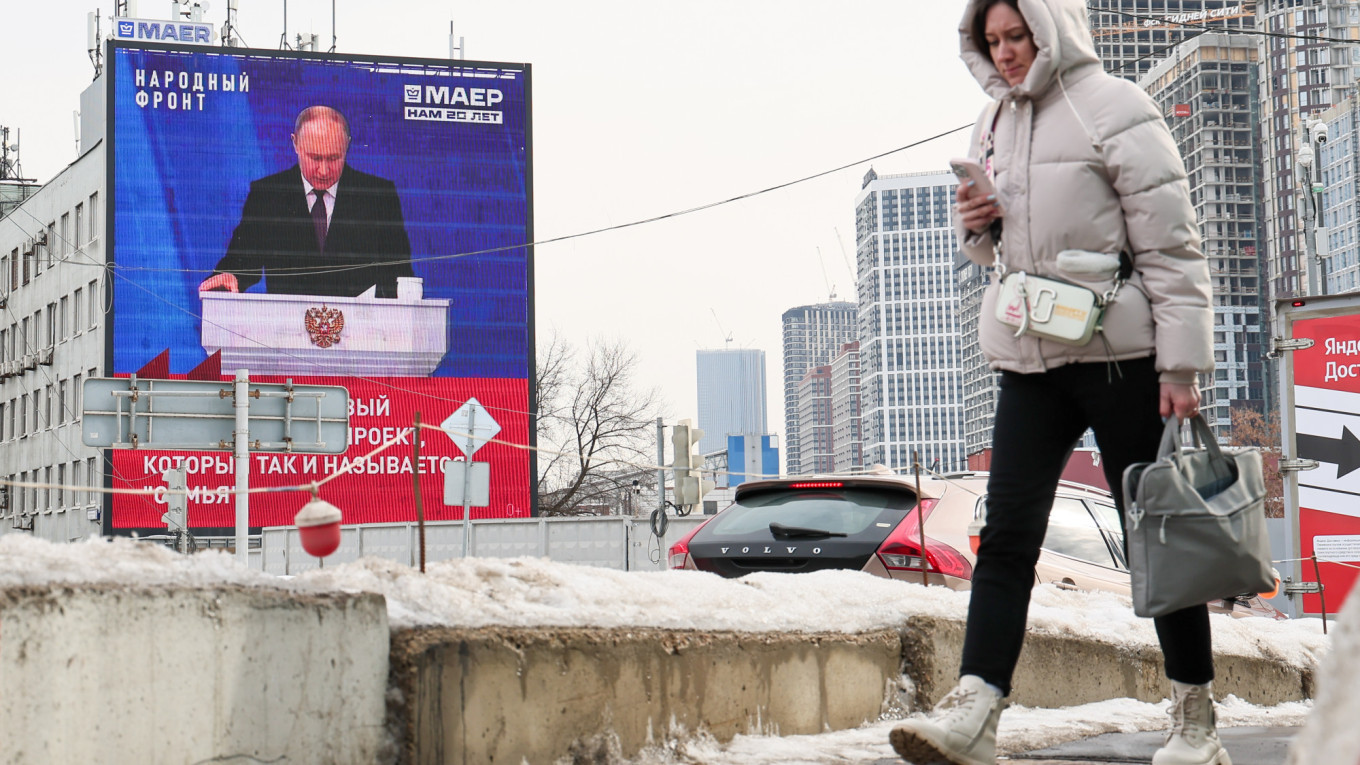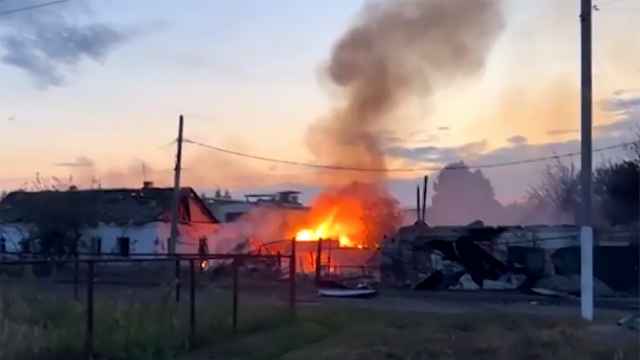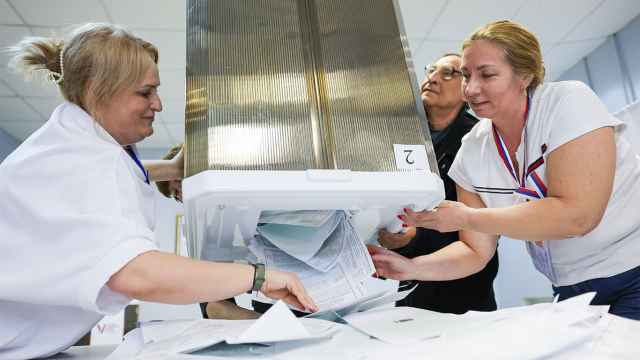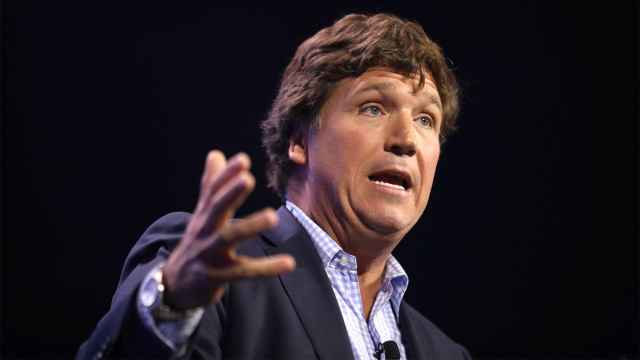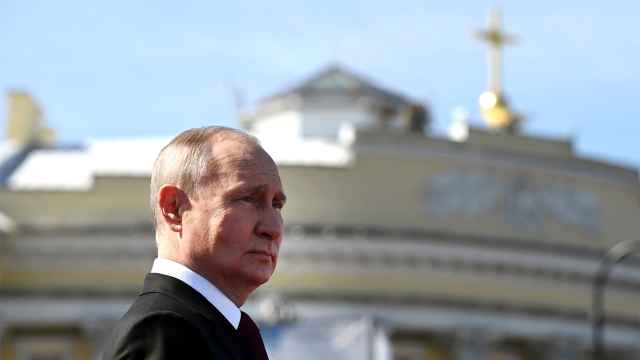President Vladimir Putin’s re-election to six more years in office on Sunday was never a question.
But once the fanfare of Putin’s cheerleaders dies down, little is known about the longtime Kremlin leader’s next steps — a fact that carries risks for Russians and the international community alike, an insider close to Russia's government leadership and a source close to the Kremlin told The Moscow Times.
All spoke on condition of anonymity due to the confidential nature of the Kremlin’s post-election strategy.
The 2024 election was not only an election for the president and the country's path forward, but one that determined “the choice of the sovereign right to build the present and future of its civilization,” Oleg Morozov, a former senior Kremlin official, wrote on the Telegram messaging app.
The regime had started its transformation from a “belligerent state” to a “war state” even before Putin’s unopposed win, as the invasion of Ukraine put the country on war footing, the source close to the Kremlin said.
“The nature of the regime is undergoing a transformation right now. War is becoming the raison d’etre of its existence,” the source said.
In its new capacity, Putin’s regime will face several important conceptual questions. These issues are as much about Putin personally as they are about Russia’s future.
He will seek to solidify his positive historical legacy, but sources said this will prove to be an unsolvable task in the long term.
“After his death, all sins will be blamed on him,” said a source close to the government leadership.
The second task is to ensure the personal security of the “chief” and his family, the same source said.
Ideology is among the conceptual tasks the regime has begun to address. Pro-Kremlin political think tanks mentioned the need for an ideological design for the Russian regime on the eve of the election.
This ideology is already being crystallized and will be one built around the notion of the conservative hierarchical concept of “family,” said a source close to the Kremlin.
“‘Family combines within itself this concept of a criminal family. This is a very clear image for the ruling faction in Russia,” the source said. “It means that there is a 'supreme arbiter' who bestows titles and distributes assets. Russia’s entire political machine is organized around this.”
The 2024 presidential election has seen levels of civil society engagement on a scale not seen since the mass protests of the winter of 2011-12.
On Sunday, thousands lined up at polling stations in Moscow and other major Russian cities, as well as at Russian embassies and consulates abroad, after the opposition called for an anti-Putin protest action at noon on the final day of voting.
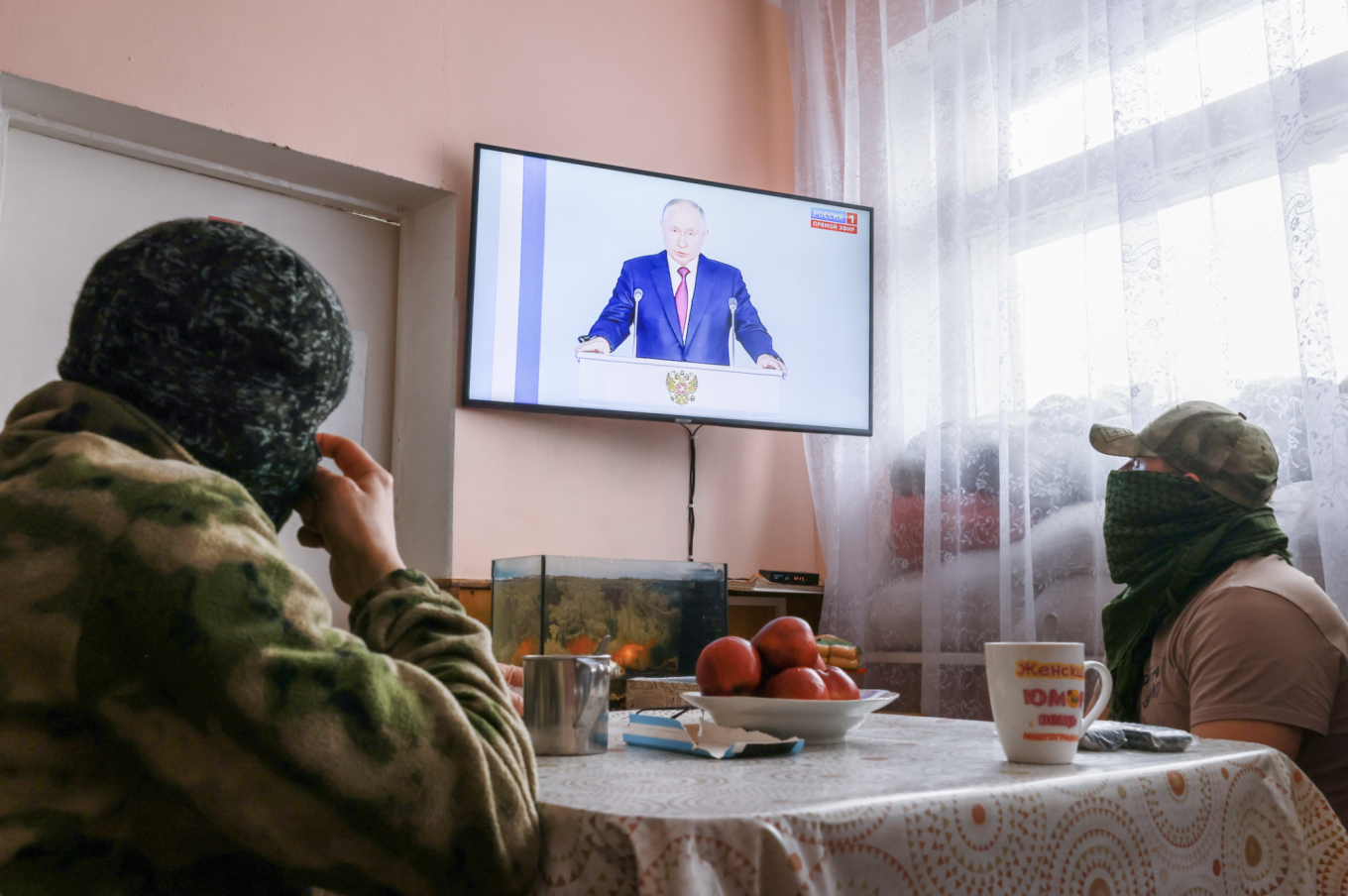
Opposition leaders have spent years calling for Russians to be more politically engaged, and this engagement is what has been sorely lacking to mount a challenge to the Kremlin.
But Putin’s electoral machinery was fully prepared to weather this outburst of activism.
Censorship, persecution of dissenters, a wide-reaching campaign to force state-dependent citizens to vote, and the implementation of electronic voting in the country’s less Kremlin-loyal regions — all with no independent observation — left no alternative but the Kremlin’s desired outcome.
State-dependent voters were ordered to go to the polling stations or vote remotely on Friday and Saturday so as not to leave everything until the last day of voting, the independent publication Faridaily reported.
Meanwhile, state media and propagandists painted anti-war Russians who lined up at polling stations in Russia and abroad at the urging of late opposition leader Alexei Navalny as supporters of Putin and evidence of a “consolidation of society” in response to "international pressure on Russia's elections.”
The Kremlin's goal for the state bureaucratic apparatus and officials in Moscow and Russia’s regions was to ensure the highest possible result for Putin, independent media reported more than six months ahead of voting day.
They were not just ordered to achieve “Putin's victory” — this victory was to come with record numbers in terms of share of the votes as well as voter turnout.
Immediately after the polls closed Sunday evening, regional election commissions across the country started posting record voting numbers in favor of Putin.
Even in the capital Moscow, where opposition sentiment is traditionally widespread, Putin won 88.8% after 70% of the ballots were counted, the state-run RIA Novosti news agency reported Sunday evening.
Russian officials, many of whom did not vote in past elections, went to the polling places this year out of fears that their refusal to vote could bring negative consequences. Five Russian government officials told The Moscow Times on condition of anonymity that they participated in the vote.
Some, however, claim they did so voluntarily.
“My beliefs are not contradicted by voting, so I showed a civic position,” a former senior Kremlin official said.
But some chose to abstain from voting nonetheless.
“I didn’t go to the polls so as not to legitimize this process, this farce. It’s not an election, it’s Putin’s plebiscite. There are no anti-war candidates to vote for. This is an election without a choice,” another Russian government official told The Moscow Times.
However, Putin's regime may face serious challenges in the future. The logic of war requires the public to be mobilized into proactive political actors supporting the regime a source close to the Kremlin said.
“An attempt to meddle in and control people's private lives, which the regime has not done before, could meet mass resistance and require increased levels of violence to quell it,” the source said.
To reach a new level of loyalty, the Kremlin will be faced with the choice of building a new cohort of business owners who owe a personal debt to Putin rather than to the 1990s era of bail auctions.
The process of redistributing assets has already begun, but potentially carries risks going forward, a current government official told The Moscow Times and a major Russian businessman confirmed.
Another challenge is the Russian economy.
Behind the bravado of impressive numbers and economic performance during the war’s first two years lie major risks from an overheating economy, a source close to the government leadership told The Moscow Times.
The country is also grappling with an acute labor shortage Putin himself acknowledged in an interview on the eve of the three-day vote.
"With all these problems, Putin's regime could potentially survive in a rotten state for another 30 years and nothing fatal might happen to it,” a source close to the Russian government leadership told The Moscow Times.
“The last thing he will do is stop allocating resources to the war.”
A Message from The Moscow Times:
Dear readers,
We are facing unprecedented challenges. Russia's Prosecutor General's Office has designated The Moscow Times as an "undesirable" organization, criminalizing our work and putting our staff at risk of prosecution. This follows our earlier unjust labeling as a "foreign agent."
These actions are direct attempts to silence independent journalism in Russia. The authorities claim our work "discredits the decisions of the Russian leadership." We see things differently: we strive to provide accurate, unbiased reporting on Russia.
We, the journalists of The Moscow Times, refuse to be silenced. But to continue our work, we need your help.
Your support, no matter how small, makes a world of difference. If you can, please support us monthly starting from just $2. It's quick to set up, and every contribution makes a significant impact.
By supporting The Moscow Times, you're defending open, independent journalism in the face of repression. Thank you for standing with us.
Remind me later.



